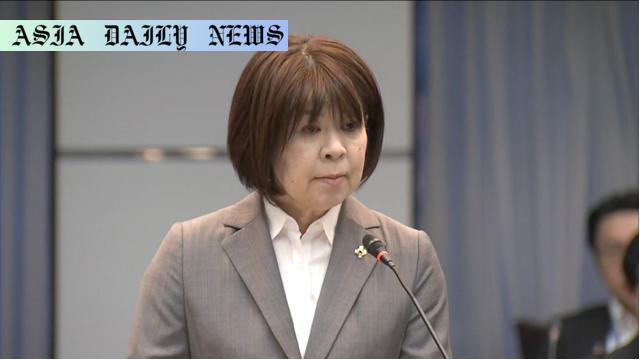Prosecutor: Recording standards revised to curb injustices.
Prosecutor General Unemoto Naomi announces expanded recording of interviews.
The reform aims to address issues of inappropriate investigative practices.
Over 90% of interviews for arrested suspects are already recorded.

Introduction to Expanded Recording Practices
Japan’s legal landscape is poised for significant change as Prosecutor General Unemoto Naomi announces plans to expand the use of audio and video recordings in criminal investigations. This bold move comes amid rising criticism of investigative methods, with several cases highlighting the inappropriate use of authority by prosecutors. The proposed reforms seek to enhance the transparency and fairness of criminal investigations, ensuring that those involved in legal proceedings are treated with justice and respect.
Current Recording Standards
Under current Japanese law, sound and video recordings are mandatory for certain cases involving lay judge trials or independent investigations by prosecutors. This legal framework ensures that interviews of suspects who are either arrested or detained are comprehensively recorded to maintain accountability. Statistics reveal that prosecutors have gone beyond the mandate, recording over 90% of interviews for arrested and detained suspects in cases outside the specified requirements.
Rising Concerns Over Investigative Misconduct
Despite these efforts, recent incidents of misconduct have cast a shadow over the credibility of investigators. Allegations of coercive questioning and the misuse of authority have prompted legal experts and the public to question the validity of depositions obtained under such conditions. Prosecutor General Unemoto has expressed deep regret over practices that undermine the fairness of investigations, emphasizing that depositions obtained through inappropriate methods cannot be positively evaluated in court.
Expanding the Scope of Recordings
In response to these concerns, the Prosecutor General has suggested extending recording practices to include interviews with individuals who are not yet detained or arrested. This measure, set to be implemented on a trial basis, aims to prevent claims of misconduct and ensure that voluntary statements are received in a transparent and ethical manner. The expansion represents a proactive effort by prosecutors to rebuild public trust and enhance the integrity of the judicial process.
Future Implications for Legal Standards
The reforms proposed by Prosecutor Unemoto have the potential to set a new precedent for legal standards in Japan. By increasing the use of recordings, prosecutors can create a transparent trail that enshrines proper communication and ensures that confessions or statements are given freely and without undue influence. This move could act as a model for other countries facing similar issues in judicial practices, elevating Japan’s position as a global leader in criminal justice reform.
Addressing Institutional Challenges
While these advancements are commendable, challenges remain. Many within the legal system will need to adapt to these changes, requiring comprehensive training and resources. Prosecutors are encouraged to maintain composure and professionalism during interviews—a behavior crucial in preventing undue stress on suspects and protecting the dignity of all parties involved.
Public Response and Reactions
The public’s response to these changes has been largely positive, with many applauding the government’s efforts to address investigative misconduct. However, critics argue that the reforms might lead to delays in legal proceedings and additional costs for recording technology. Nonetheless, experts believe these challenges are minor compared to the long-term benefits of restoring public trust and improving the justice system.
Conclusion
Prosecutor General Unemoto Naomi’s decision to expand the mandatory recording of interviews marks a pivotal moment for Japan’s legal system. The initiative underscores a commitment to fairness, transparency, and accountability—principles that are foundational to a just society. By addressing the root causes of investigative misconduct, Japan is taking significant strides toward creating a judicial system that upholds the rights of all individuals involved in criminal investigations.
Commentary
A Step Towards Transparent Justice
The recent announcement by Prosecutor General Unemoto Naomi to expand audio and video recordings of suspect interviews represents a landmark move in Japan’s criminal justice system. As nations worldwide debate ways to ensure fairness and transparency in legal proceedings, this initiative serves as a prime example of proactive reform aimed at addressing existing gaps and rebuilding public trust.
Addressing Investigative Misconduct
One of the most compelling aspects of this decision is its focus on addressing misconduct in investigations. Allegations of coercive practices not only undermine public confidence in the justice system but also diminish the value of evidence presented in court. By expanding recording requirements, Japan is taking a crucial step toward ensuring that every deposition and confession is obtained ethically and transparently, safeguarding the rights of suspects and upholding judicial integrity.
Broader Implications for Global Practices
This development has broader implications for judicial practices worldwide. As a leading global economy, Japan’s actions in addressing issues within its legal system serve as a potential benchmark for other nations. The implementation of expanded recording practices not only restores public confidence but could also spark necessary debates about reforms in other legal systems struggling with similar misconduct concerns.
The Challenges Ahead
However, implementing these reforms will not be without challenges. Prosecutors and legal professionals must undergo extensive training to adapt to the new standards, and resources must be allocated efficiently to ensure technological integration in all investigative environments. Despite these challenges, the long-term benefits far outweigh the costs, offering a more robust and fair justice system for all.
Final Thoughts
In conclusion, Japan’s decision to expand the recording of suspect interviews is a monumental step in the right direction. By prioritizing transparency and accountability, the reforms introduced by Prosecutor General Unemoto Naomi will shape a fairer legal landscape for years to come. This move not only addresses current challenges but also sets a progressive tone for the future of criminal justice.


